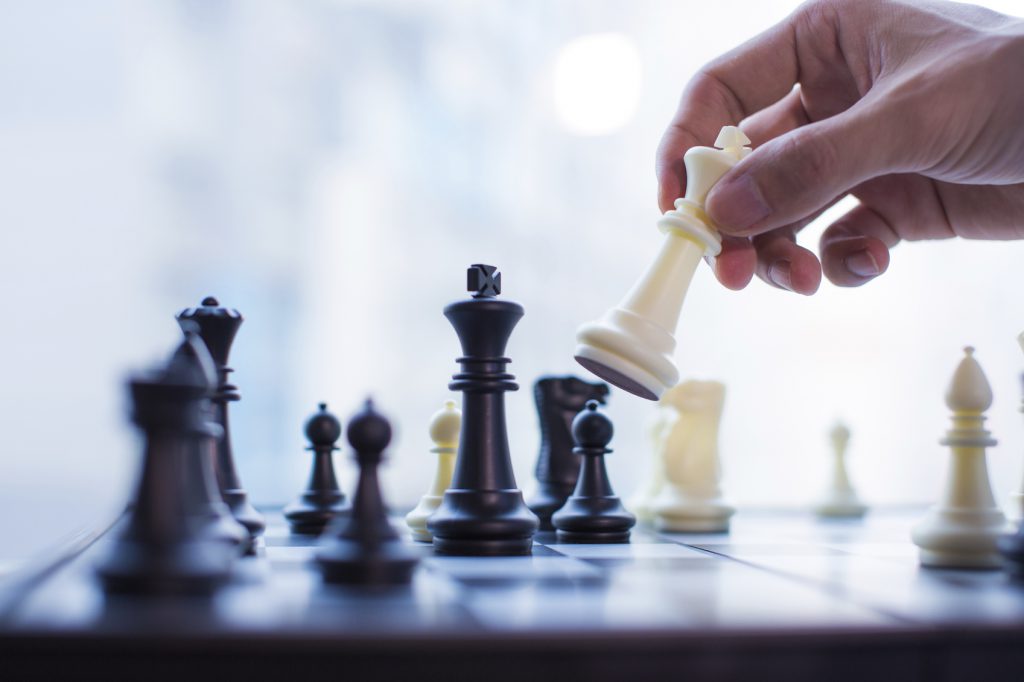Is There an Ideal Time of Day for Decision-Making?

When you have to make a big decision, does the time of day make a difference in your abilities? Are your wits sharpest first thing in the morning, or perhaps after you’ve had time to get in a few cups of coffee? Or, if you’re more of a night owl, maybe you do your best thinking in the middle of the night.
In order to investigate realistic decision-making in a large group of people throughout the day, a team of Argentinian psychological scientists turned to an intriguing source of data: online chess matches. Immense databases of time-stamped chess games allowed the researchers to investigate real world variations in decision-making across all hours of the day.
The research team, which included postdoctoral fellow María Juliana Leone (who won a Woman International Master chess title in 1999) and APS Fellow Mariano Sigman, found that decision-making abilities do appear to fluctuate across the day: In the morning decisions tend to be slower but more accurate, and late in the day decisions were made more abruptly with less accuracy.
According to the researchers, chess provides several research advantages compared to other decision-making domains. The quality of chess players is determined through a standardized rating system, and the online play allows each move and decision in a game to be analyzed based on standardized criteria.
When it comes to our behavior and time of day, individual differences in circadian rhythms, called chronotypes, play a role in when people prefer to go to sleep and when they wake up. Individuals who prefer to stay up late are called “owls” and those who prefer to get up early are called “larks.” Other individuals are somewhere in the middle.
Chronotypes have been shown to influence a wide range of behaviors, including whether people are prone to cheating. For example, a study published in Psychological Science suggests that morning people (e.g., “larks”) tended to be most ethical in the morning whereas evening people, (e.g., “owls,”) tended behave more ethically in the evening compared to the morning.
Leone and colleagues hypothesized “that players would exhibit circadian fluctuations in speed and accuracy of the decisions revealing diurnal variations which depend on specific chronotypes.” That is, larks would play best in the morning, while owls would play best in the evening.
Chess data came from the Free Internet Chess Server (FICS), a free server for playing Internet chess games, with more than 400,000 registered users. All registered users have a standardized skill rating which is updated after every game.
The researchers recruited samples of players who had played at least 2,000 games. Approximately 100 participants were asked to note their Time Zone, age, and to complete a Morningness-Eveningness Questionnaire (MEQ), which indicates morning or evening preferences. The players also completed a short questionnaire about daily sleep routines, meal habits, and wake-up times.
As a control group, the researchers also included games from 14 computers that regularly play in FICS, since “computers are not expected to have diurnal fluctuations in the decision process.”
The researchers were able to calculate a “quality” score for each move of each participants’ game by including the analysis of each position using an open source chess engine called Stockfish.
The results showed that chess playing activity tended to follow along with a player’s chronotype: Larks played more games in the morning and owls played more often in the evening. However, chronotype did not appear to have a significant impact on play performance. Regardless of players’ chronotype, the researchers observed a consistent pattern in decision-making quality and time of day.
“We found that players changed their decision-making policy throughout the day: players decide faster and less accurately as the day progresses, reaching a plateau early in the afternoon,” the researchers write. “This effect was observed for all players regardless of their chronotype, indicating that changes in decision time are mainly determined by the time of the day.”
That is, there wasn’t a time of day when players were definitively efficient decision-makers. Instead, the data suggest that player employ slightly different decision-making strategies depending on the time of day.
“Indeed, during the morning players adopt a prevention policy, playing slower and more accurately (as if they were playing with higher level opponents) and, during the evening, they adopt a more risky (promotion) policy where decisions are faster but less accurate,” the researchers conclude.
References
Gunia, B. C., Barnes, C. M., & Sah, S. (2014). The Morality of Larks and Owls Unethical Behavior Depends on Chronotype as Well as Time of Day. Psychological Science, 25(12), 2272-2274. doi: 10.1177/0956797614541989
Leone, M.J., Slezak, D.F., Golombek, D., Sigman, M. (2017). Time to Decide: Diurnal Variations on the Speed and Quality of Human Decisions. Cognition. doi: 10.1016/j.cognition.2016.10.007





Comments
I need to obtain permission to reproduce text from your site in a school textbook. Please contact me. this is a second request
Your article Is interesting. …
APS regularly opens certain online articles for discussion on our website. Effective February 2021, you must be a logged-in APS member to post comments. By posting a comment, you agree to our Community Guidelines and the display of your profile information, including your name and affiliation. Any opinions, findings, conclusions, or recommendations present in article comments are those of the writers and do not necessarily reflect the views of APS or the article’s author. For more information, please see our Community Guidelines.
Please login with your APS account to comment.